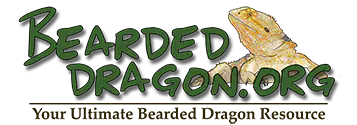This may sound like a stupid question and has probably been covered already but one thing about observing a bearded dragon from a scientific point of view has always been on my mind.
I decided to set up my dragons tank two years ago so it was in full view of me when im home, except for when im in the kitchen. I figured the best way to observe and learn different behavior would be to always keep an eye on her. But i noticed as time went by my dragon is doing the same thing...she always has an eye on me, and i mean always. I know they are curious, i know there isnt anything else to look at. When we are watching tv shell turn around every 10 min or so and make eye contact, when she is out exploring shell take a few steps and turn her head back to make eye contact, when shes in her cage she is usually looking at me and at the off chance shes staring elsewhere as soon as she sees me turn my head she makes eye contact, when i walk to the kitchen her head turns to follow me. We have a good relationship from what i can tell, if she wants to sit with me she will otherwise shes free to roam and be alone and i know she gets mad when i am gone for an entire day.
So how accurate really can my observations be if she knows shes being watched? Also for the first few months and even till today i cant help but wonder if im adversly affecting her by always being around since they are a solitary animal. Anyway, just throwing this out there for peoples consideration whom have had long term experience.
I decided to set up my dragons tank two years ago so it was in full view of me when im home, except for when im in the kitchen. I figured the best way to observe and learn different behavior would be to always keep an eye on her. But i noticed as time went by my dragon is doing the same thing...she always has an eye on me, and i mean always. I know they are curious, i know there isnt anything else to look at. When we are watching tv shell turn around every 10 min or so and make eye contact, when she is out exploring shell take a few steps and turn her head back to make eye contact, when shes in her cage she is usually looking at me and at the off chance shes staring elsewhere as soon as she sees me turn my head she makes eye contact, when i walk to the kitchen her head turns to follow me. We have a good relationship from what i can tell, if she wants to sit with me she will otherwise shes free to roam and be alone and i know she gets mad when i am gone for an entire day.
So how accurate really can my observations be if she knows shes being watched? Also for the first few months and even till today i cant help but wonder if im adversly affecting her by always being around since they are a solitary animal. Anyway, just throwing this out there for peoples consideration whom have had long term experience.
